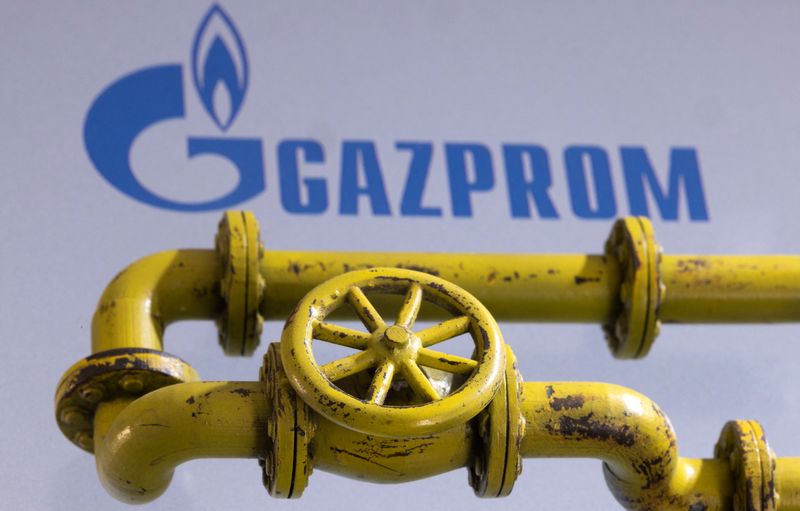By Geoffrey Smith
Investing.com — Russian gas monopoly Gazprom (MCX:GAZP) said on Wednesday it wouldn’t guarantee the resumption of gas shipments to Europe through its pipelines, despite recent political decisions in Canada allowing the return of key compression equipment from maintenance.
Under pressure from European allies in the throes of an energy crisis, the Canadian government had agreed to a waiver of its sanctions on Russia, allowing German engineering company Siemens Energy (ETR:ENR1n) to ship the equipment back to the Portovaya compression station. Gazprom had blamed its decision to cut gas supplies to Germany by 60% in June on the absence of that equipment – an explanation that Berlin had rejected as false and politicized. Gazprom has refused to reroute contracted supplies to Europe through other pipelines, without giving any explanation.
“Gazprom does not possess any documents that would enable Siemens to get the gas turbine engine for the Portovaya CS (compression station) out of Canada, where it is currently undergoing repairs,” the Russian gas monopoly said in a statement. “In these circumstances, it appears impossible to reach an objective conclusion on further developments regarding the safe operation of the Portovaya CS, a facility of critical importance to the Nord Stream gas pipeline.”
As with its initial explanation, Gazprom’s statement is likely to be taken by European governments as a pretext for keeping the gas taps to Europe shut, raising the pressure on the West to abandon its support for Ukraine.
Nord Stream, the pipe that transports Russian gas under the Baltic Sea directly to Germany, was shut down completely at the start of this week for a period of scheduled maintenance that typically lasts around 10 days.
Benchmark European natural gas futures rose another 4.6% on Wednesday to trade at 180 euros a megawatt-hour, as the prospect of gas rationing during the coming winter moved closer to becoming a reality.
Gazprom’s statement came barely an hour after the European Union made concessions to Russia, ruling that sanctioned goods can pass through EU territory to the Russian exclave of Kaliningrad, which is sandwiched between EU members Lithuania and Poland. Lithuania had blocked the transport of such goods a couple of months ago, with the EU’s backing. On Wednesday, however, the European Commission ruled that rail shipments from mainland Russia and Belarus can continue, as long as they do not contain military goods.
Lithuania had tightened its restrictions on transit earlier this week, extending them to include concrete, wood, alcohol and alcohol-based industrial chemicals.
Kremlin spokesman Dmitry Peskov said that the EU’s concessions still didn’t resolve the issue.

Source:investing.com

